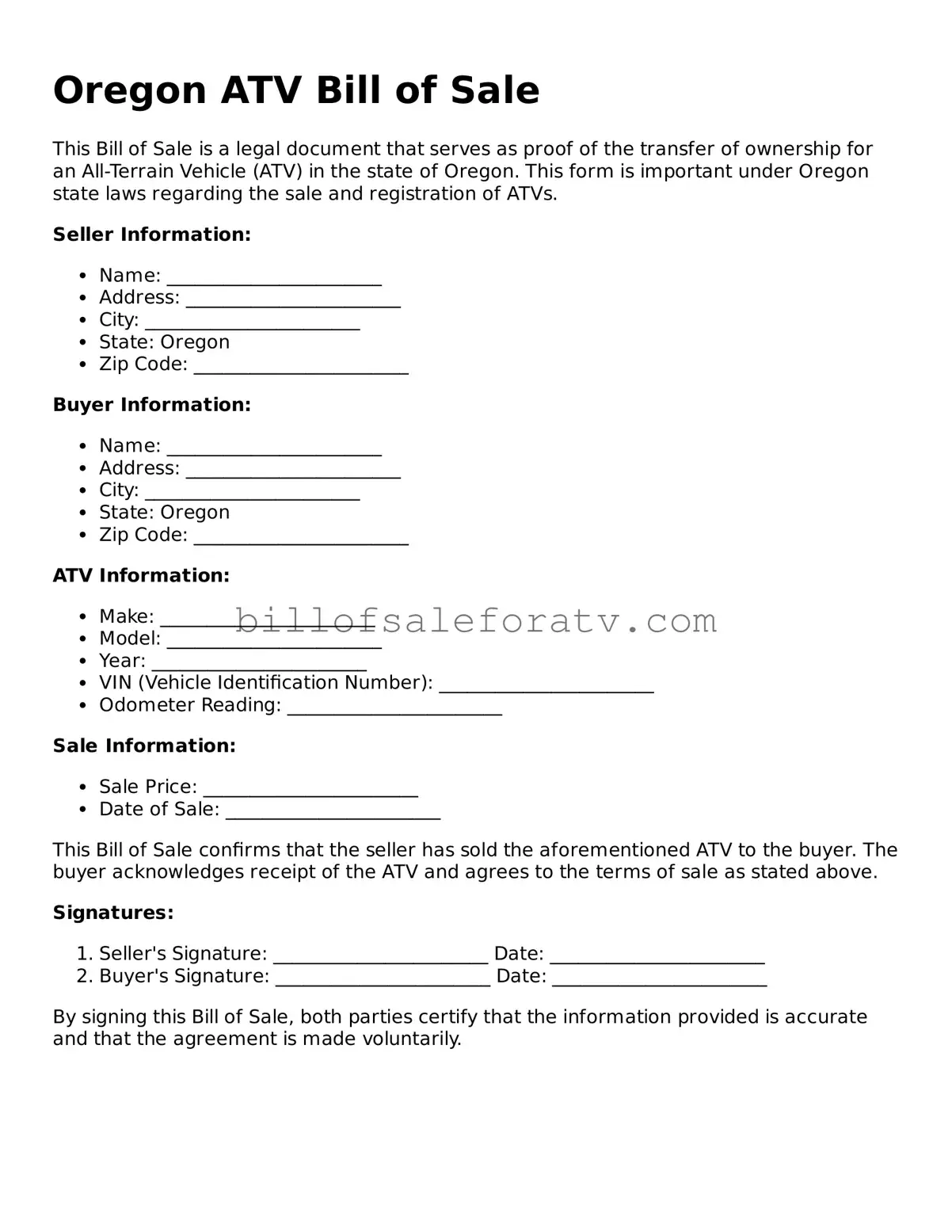Oregon ATV Bill of Sale Template
The Oregon ATV Bill of Sale form is a legal document that records the sale of an all-terrain vehicle in Oregon. This form serves as proof of ownership transfer between the seller and buyer, ensuring both parties are protected during the transaction. To get started, fill out the form by clicking the button below.
Customize Form Now

Oregon ATV Bill of Sale Template
Customize Form Now
Don’t let your work go to waste
Edit and finish your ATV Bill of Sale online, then download.
Customize Form Now
or
⇓ ATV Bill of Sale PDF
